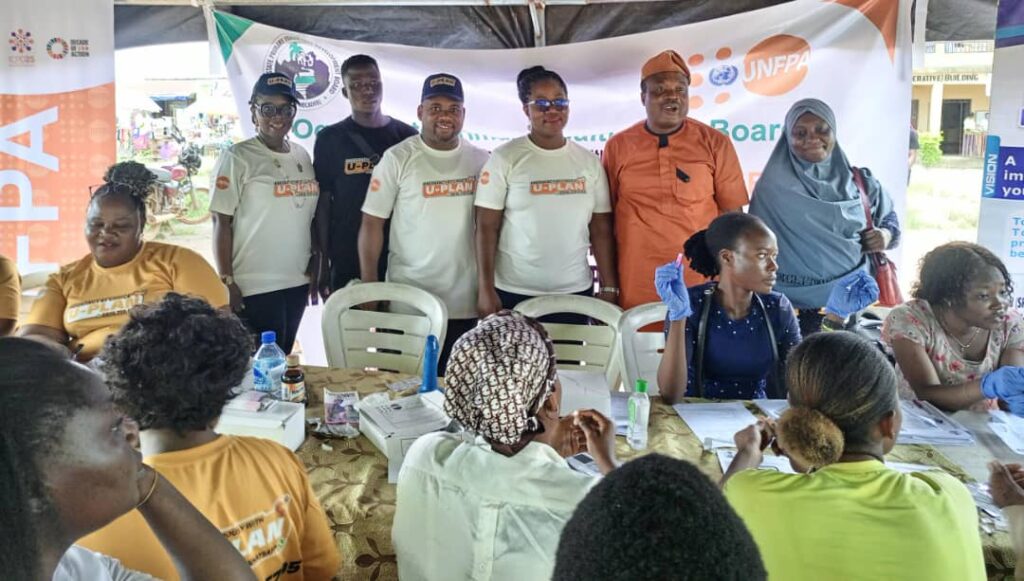
Ogun State Primary Health Care Development Board workers with United Nations Population Fund (UNFPA)
UNFPA, NGO collaborate to end Female Genital Mutilation in Nigeria
The Action Health Incorporated (AHI), an NGO, is poised to end Female Genital Mutilation in collaboration with the United Nations Population Fund (UNFPA).
The Programme Coordinator, AHI, Ms Fatima Idris, who spoke on the sideline of a three-day capacity building on the use of digital technology on Friday, insisted that FGM violates girls right.
The three-day capacity building was organised for selected 40 adolescent girls in Ibadan.
Idris said the objectives was to increase the knowledge of FGM through the use of digital technology skills, mobilse and train the selected girls to become champions of FGM who would continue to coordinate FGM school clubs after the training.
She noted that FGM concerns all procedures that involve the partial or total removal of external genitalia or other injury to the female genital organs for non-medical reasons.
She explained that FGM results in complications, such as intense pain, excessive bleeding, urinary inconvenience, difficulties during menstruation, clitoral neuroma and difficulties during sexual intercourse and childbirth among others.
“FGM violates a series of well established human rights principles, norms and standard such as right to freedom from torture or cruel inhuman or degrading treatment.
“We have 30 in-school adolescent girls and 10 out-of-school adolescent girls from different schools and communities participating in the training.
“The training is exposing the participants to digital content creation skills to raise FGM awareness and the best three girls after the programme will go home with laptops.
“We are also teaching them how to pass the skills acquired to other girls in their various schools and communities around them.
“There will be a post training follow up visit to benefiting schools and communities to monitor the level of implementation across the schools and communities,” she said.
Also, Director, The Gender/FGM Analyst, UNFPA, Uzoma Adedeji, said that any alteration, mutilation or cutting of female genitalia significantly alters the ability to perform physiological functions like childbirth.
She said the maternal obstetrical complications of female genital mutilation substantially increases the risk of maternal death.
In the same vein, Mrs Toyin Adelowokan of the Oyo State Ministry of Health, warned that FGM victims could suffer infection of the uterus and vagina ascending from the genital wound and necrotising fasciitis.
According to her, female genital mutilation process could also lead to the formation of a keloid scar because of slow and incomplete healing of the wound.
A participant, Victoria Anozie of Ibadan Municipal Grammar School, said that the training had exposed her to technology skills that could be used to raise awareness against FGM, online violence and other forms of Gender Based Violence (GBV).
Also, another beneficiary from Hausa Community in Ibadan, Mariya Musa, thanked the organisers for the training, saying, “it will go a long way in reducing FGM practice in her community.”
The capacity building featured presentation of laptops to best three participants and certificate to all the participants.
